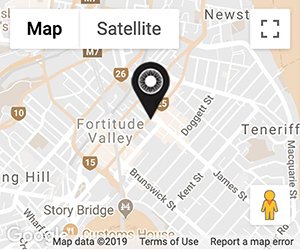What are the advantages and disadvantages of implantable contact lenses?
Implantable Contact Lenses (ICLs) represent a significant advancement in corrective vision technology, offering an alternative to traditional glasses, contact lenses, and laser eye surgery. As with any medical procedure, there are both benefits and drawbacks to consider.
Understanding what the benefits of implantable contact lenses are, alongside their potential disadvantages, is crucial for anyone considering this option for vision correction. This blog aims to provide a comprehensive overview of the advantages and disadvantages of ICLs to help you make an informed decision.
The big advantage of implantable contact lenses is that it enables people who aren’t suitable candidates for LASIK or PRK to have vision correction.
Advantages of Implantable Contact Lenses
1. Effectiveness in treating a wide range of vision problems
ICLs are effective for a wide range of refractive errors, including myopia (nearsightedness), hyperopia (farsightedness), and astigmatism, even in cases where laser eye surgery may not be recommended.
2. High-Quality vision
One of the most significant benefits of implantable contact lenses is the quality of vision they provide. ICLs can offer sharp, clear vision, often described as HD vision, because they work in harmony with the natural eye.
3. UV protection
ICLs can offer built-in UV protection, shielding the eyes from the harmful effects of ultraviolet radiation without the need for additional UV-blocking eyewear.
4. Reversible procedure
Unlike laser eye surgery that permanently removes corneal tissue, ICLs are entirely reversible. If necessary, the lenses can be removed or replaced by an ophthalmologist.
5. Quick recovery
The recovery time for ICL surgery is relatively short. Many patients report significant improvements in vision almost immediately after the procedure, with a return to normal activities within a few days.
6. Suitable for thin corneas
For patients with thin corneas, where laser eye surgery might not be an option, ICLs provide a safe and effective alternative.
In summary, ICLs have a significant advantage in enabling a greater range of people to undergo vision correction. People with high prescriptions, irregular cornea or dry eyes can benefit from ICLs. We can use it with people who have naturally too thin corneas to be suitable for laser eye surgery.
ICL surgery also offers vision correction for patients who cannot use glasses or contact lenses. We can also offer ICL to patients who have had cataract surgery to restore their vision. The procedure only takes about 30 minutes and is relatively painless. You can find out more about the what are the benefits of implantable contact lenses here.
What are the downsides of implantable contact lenses?
1. Surgical Risks
As with any surgical procedure, there are risks involved with ICL implantation, such as infection, inflammation, or issues with lens placement. However, these risks are minimized with proper surgical care and post-operative monitoring.
2. Potential for Night Vision Disturbances
Some patients may experience halos or glare around lights at night after ICL surgery. These effects are typically temporary and often diminish over time.
3. Cost
ICL surgery can be more expensive than other forms of vision correction, such as glasses, contact lenses, especially in the short term, including some types of laser eye surgery. It’s essential to consider the long-term investment compared to the cost of continually purchasing glasses or contact lenses.
4. Not Suitable for Everyone
Although ICLs can correct a wide range of vision problems, they may not be suitable for all individuals. Conditions such as severe dry eye, certain corneal diseases, or extremely high refractive errors may preclude some patients from being good candidates.
5. Maintenance
While ICLs are designed to be a long-term vision correction solution, they may require maintenance or replacement over time. Regular check-ups with an ophthalmologist are essential to ensure the lenses are functioning correctly and to maintain eye health.
The ICL procedure is more involved than other vision correction procedures, such as LASIK or PRK. It requires day surgery and an operation on each eye to place the artificial contact lens, also known as an implantable collamer lens (ICL), inside the eye to correct vision. The lens has to be placed carefully to ensure that it stays in the correct position to restore vision in the long term. However, once the lens is in place, it does not need to be removed or replaced.
Choosing to undergo ICL surgery is a personal decision that should be made based on a comprehensive understanding of the advantages and disadvantages. Consultation with a qualified ophthalmologist who can assess your specific vision needs and health status is crucial.
If you’re considering ICLs as a solution for your vision correction needs, we invite you to schedule a free assessment with our clinic. Our team of eye care professionals will provide you with a thorough examination, discuss your vision correction options, and help you determine if implantable contact lenses are the right choice for you. Don’t let vision problems limit your quality of life. Schedule your free assessment today and take the first step towards clear, high-quality vision.

Hi, I’m Dr. Matthew Russell, a laser and cataract surgeon
HI I’M DR. MATTHEW RUSSELL A LASER EYE AND CATARACT SURGEON
With over 15 years of experience, I enjoy the privilege of helping patients of all ages reclaim clear vision or preserve it for as long as possible.
Vision correction and high-precision cataract surgery hinge on the expertise and skill set of the provider who also has access to the most precise tools for the job. Ophthalmic surgeons like me know how to make treatment safe, comfortable and positive for the patient. They know how to minimise the risk of complications and maximise successful outcomes.
I have a passion for helping my patients enjoy the clear, high-definition vision they need to live rich and active lives. Now, I have hand-picked a team of professionals that share my passion and commitment to exceptional care.
Dr. Matthew Russell
MBChB, FRANZCO






